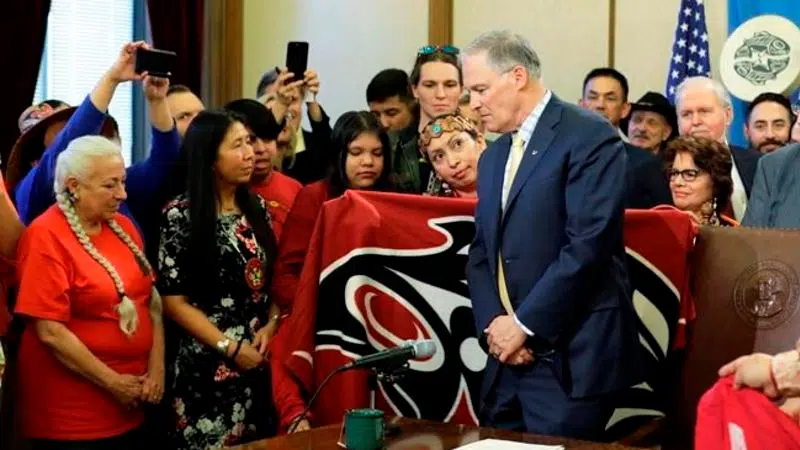
Missing indigenous women spotlighted as bill signed
OLYMPIA, Wash. — A growing number of missing and murdered Native American women are the focus of a Washington bill signed into law Wednesday amid concerns the victims’ cases are slipping between jurisdictional gaps.
Taking aim at confusion stemming from overlapping law enforcement boundaries and other factors, the bill creates a pair of liaison positions within the state patrol and requires the agency to develop best practices for handling the cases.
Washington Gov. Jay Inslee signed the bill in a brief ceremony at the state capitol, accompanied by banging drums and a loud cheer. The legislation also requires training for the state police in government relations with tribes.


